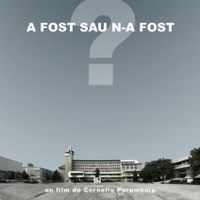Lucas Rosant Talks About Paris Project
This month, SEA-Images meets with Lucas Rosant, the director of Paris Projects, the professional platform of Paris Cinema Festival
Could you introduce Paris Cinema Festival and Paris Projects?
In the beginning, it was launched by the City of Paris and its mayor in 2003. The city wanted to have a film festival in early July, dedicated to author films, but oriented toward the popular audience.
In terms of programmes, the festival offers a competitive section of 15 films, some premieres, some thematic retrospectives such as Korean cinema last year and Lebanese cinema this year, and a few tributes to actors and directors. There is an additional programme for children. There are also some side activities that introduce different positions and jobs of film industry to the public.
As a parallel event, there is also a professional platform, which is Paris Projects.
Paris Projects is a forum for co-production projects, in which producers and directors from various countries can meet potential French partners.
In its earlier years, Paris Projects used to present 7 projects. This year, for its 5th edition, we will have 11 projects in development, and more and more European professionals and producers are participating in it.
How does the selection process of Paris Projects work? And what else do you offer to the participating professionals?
We receive projects from all over the world: Asia, Eastern and Western Europe, and South America.
We prioritize projects that could be interesting for us, ones that we’d love to screen at Paris Cinema Festival, and stories, visual quality and director's intentions are also considered important.
We also balance our choice with consideration of the economic feasibility of the projects. Projects should have a commercial potential; and we also give priority to projects from countries which have co-production agreements with France and with which France has exchanges in terms of cast or location.
In addition to these 11 new projects, we tried to innovate by arranging screenings of films at postproduction stage and films that need further funds to be completed.
This year, River People, a Chinese film by He Jianjun, produced by Shan Dong Bing is seeking for around 70 000 Euros for the completion of its postproduction.
Still of River People by He Jianjun
We also have a series of conferences and round-tables. For example for the 2007 edition, there will be a conference on taxes incentives with speakers from Germany, Denmark, Luxembourg, Belgium and Hungary, who will introduce their national policies and explain different co-production tools.
Lastly, we will have a session of meetings with Japanese producers in partnership with Unijapan. These days, Japanese producers are looking for more opportunities of international co-productions. The Japanese film industry has been quite self-reliant in this field, although it has found partnerships in neighbouring countries in Asia.
There is little collaboration with Europe, so we want to offer a platform here in Paris for Japanese producers so that they could meet their French counterparts.
It will be an opportunity for these Japanese professionals to explain their culture, their market, how copyright functions in their country, how films are financed, etc.
What are the noticeable points of this year’s Paris Projects?
This year, we have a strong Asian presence. There is a Malaysian project by Ho Yuhang, which was previously presented at HAF. HAF is a co-production forum in Hong Kong and one of our partners.
We also present a project by Lou Ye, the director of Summer Palace and Suzhou River. Since he is not allowed to make films in China for 5 years, the action of his project takes place in Paris. We’re particularly interested in its artistic aspect and contents, and besides, the project will need a French partner if it is going to be shot in Paris.
There is also a project from Japan, Dazai, which has already a French director and a French actress, but no French producer at the moment. And a Korean project by Jeon Sooil With a girl of Himalaya, the action of which takes place in Tibet.
We also have several other projects, including a Swiss comedy, one from Chile which was at Rotterdam's Cinemart, another of our partner, and two Romanian projects. Romanian Cinema is strongly in the spotlight these days with the films that won the Palme d'Or at Cannes this year and the Caméra d'Or last year. There will also be a number of projects brought by the Japanese delegation.
Do you follow up these different projects? Can you foresee the achievements of the event?
Since Paris Projects is still at a very young stage, I don’t have any example of ‘success story’ of films that were made through our event. And so far, we have often chosen projects that are not easy in terms of financing. We try to follow up the projects at their different stages, but it's not always easy because it can take a few years for a project to turn into film and producers or companies can change. Recently, we had a Turkish project in 2006, Egg by Semih Kaplanoglu, which was invited at Cannes this year. Egg is part of a trilogy, and it was during Paris Projects that the director signed with a French producer and a German producer for the two following instalments.
For more information: www.pariscinema.org
Similar content
deadline
22 Apr 2011
By Jérémy Segay
22 Feb 2008
By Kerrine Goh
25 Jun 2007
By Jérémy Segay
05 Dec 2005

